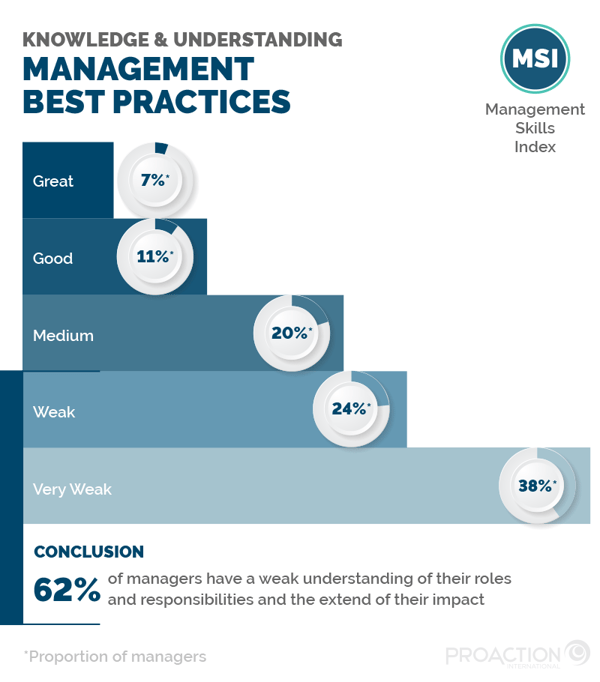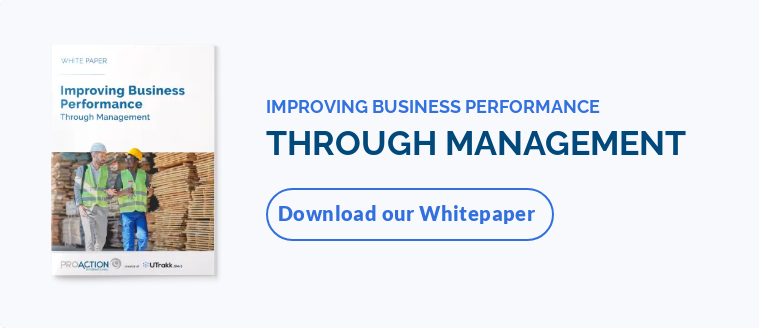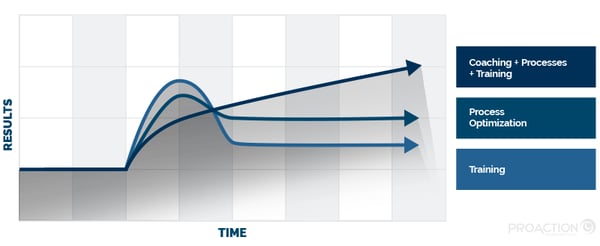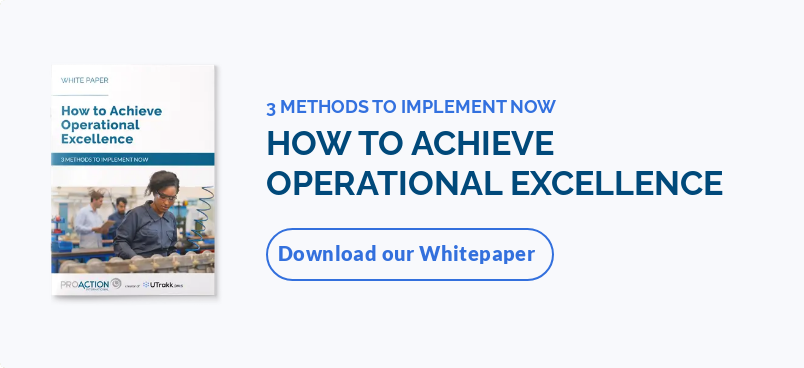Why is coaching important for managers?
Front-line managers are often excellent operations employees who have risen through the ranks in their career development to oversee the activities in their area. They have profound technical knowledge, but little management know-how and skill.
Research conducted over the past two decades indicates that 62% of managers (including front-line managers) have weak or very weak management skills.

Why you should invest in front-line management coaching
Our data also shows that businesses that have implemented a strong management coaching culture have seen tangible and sustainable results*:
-
15% improvement in productivity
-
34% cost reduction in product waste
-
10% improvement in indirect labor costs
* Real statistics from Proaction International’s clients in 12 countries over the last 2 decades.
Bottom line: human resource development such as improving management skills is a low-hanging fruit for businesses that need to improve their performance.
One more key point: It's a solution that leverages existing workforce talent, instead of requiring the hiring of additional team members or major investments in technology and equipment to increase throughput.
How front-line management coaching improves business performance
Organizations win on all fronts when they offer their first-level managers support in their professional development through coaching sessions so that they master and apply the principles of active supervision.
Front-line management coaching can lead to operational gains, not only in terms of yield and material recovery but also in :
-
Product quality
-
Employee engagement
-
Health and safety
-
Environmental sustainability
Whatever sector they are in, whether it's agri-food, aerospace, manufacturing, construction, heavy industry, or another.
Front-line management coaching is a proven methodology for developing new management skills to improve performance management.
In terms of organizational performance improvement, this means:
-
Adapting to projected and fluctuating volumes
-
Increasing efficiency in cleaning and starting up the production line
-
Improving material yield and recovery
-
Etc.
People-centric management to thrive in the face of labor shortages
Front-line management coaching not only influences companies’ operational performance - it intervenes at the human level.
In other words, it helps create work environments that promote well-being, personal fulfillment, and, more generally, employee engagement - with low turnover intention.
“I have seen our managers blossom through coaching. They are more present on the floor, more confident, and just rocking it with the DMS. The approach and the system gave them the ability to become strong leaders.” Karen Maynard, Human Resources Director, Zavida Coffee
4.5 million Americans left their jobs in the movement known as the Great Resignation in the wake of the COVID-19 pandemic, and the trend continues in time and space. In Canada, 62% of employees were thinking of quitting in 2021, compared to 49% in 2020, according to Hays Specialist Recruitment Canada.
Businesses that do well are those that focus on employee well-being and engagement, as well as their managers' ability to create and maintain a healthy work environment. These businesses will see their retention not only less affected but improved in the coming years.











